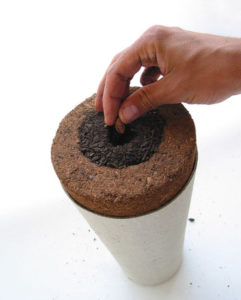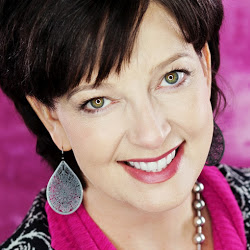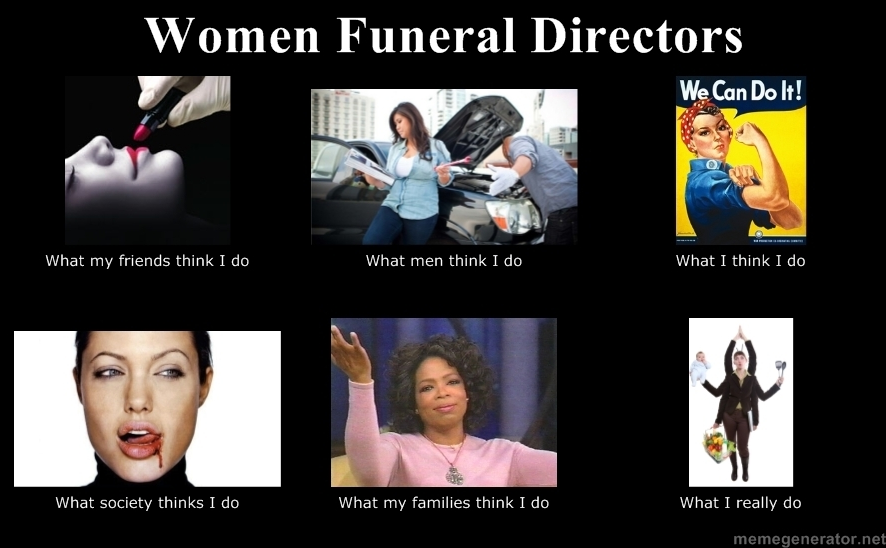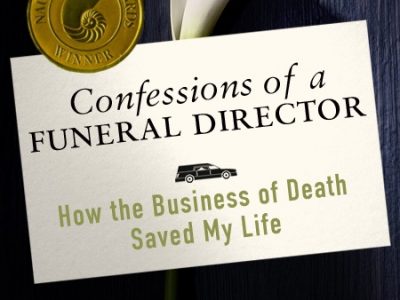Would You Consider a Green Burial?
Seventy-five years from now it’s very possible that Green Burials will replace embalming as “the traditional mode of disposition.” The environmental friendliness of green burials is one reason (not to mention the DIY spirit behind it) why I believe Americans may start to trend towards this mode.
The following is an older article from Apartment Therapy (that I found via a link from Connecting Directors) that provides some of the environmental reasoning behind green burials:

Scientific American says it well: “Modern western-world burial practices are arguably absurd, all things considered: We pack our dearly departed with synthetic preservatives and encase them in impenetrable coffins meant to defy the natural forces of decomposition that have been turning ashes to ashes and dust to dust for eons.”
Along with this, shall we call it, denial, there is a tremendous amount of waste in modern burials, at least in America.
According to National Geographic,
“American funerals are responsible each year for the felling of 30 million board feet of casket wood (some of which comes from tropical hardwoods), 90,000 tons of steel, 1.6 million tons of concrete for burial vaults, and 800,000 gallons of embalming fluid. Even cremation is an environmental horror story, with the incineration process emitting many a noxious substance, including dioxin, hydrochloric acid, sulfur dioxide, and climate-changing carbon dioxide.”
That’s heartbreaking. Death is hard enough to contemplate, but the last thing I want to do after I’m gone is make the world worse for everyone else still here. Sure, I’ve loved trees and steel and concrete in this life, but I certainly don’t need them once I’ve passed away. You guys enjoy them! And after trying so hard to be a good person, I really don’t want my final contribution to the world to be a noxious substance.
So, what to do? Scientific American lists a few options, including sustainably-harvested more-biodegradable coffins, trees instead of headstones, dry ice instead of embalming fluid, and specially-designed urns that can become part of ocean reefs.
The Huffington Post likewise lists horrifying statistics (formaldehyde causes cancer and prevents a corpse from “decomposing efficiently, and this slow rotting process favors sulfur-loving bacteria, which can harm nearby water sources”) and better, more affordable alternatives.
Two that caught my eye were a new technology that can turn a corpse into compost, and a bicycle hearse. Design Taxi featured Martín Azúa’s Bios Urn (shown above), a biodegradable urn that holds ashes and the tree seed of your choice (although keep in mind that according to the Huffington Post, “the energy used to cremate one body is equivalent to driving 4,800 miles”).
*****
Ignoring the acerbic language and tone of the article, would you consider a green burial?
Playing Taps and Doubting God
Today’s guest post comes from Jennifer Lee.
*****
I was a freshman in high school, standing with my head bowed behind the cemetery shed, where the maintenance guys stored the lawnmower. It was noon on a late-winter day, and I waited for my cue, a military gun salute.
I leaned against the weather-beaten wooden planks – hard and cold like my waning faith – while holding a silver trumpet. The family huddled against the wind on velvet-covered folding chairs, under a blue tarp, while the preacher read from a pocket-sized book of last rites.
The uniformed veterans lifted their guns, clicked and fired. Clicked and fired. Clicked and fired.
And I — the lone bugler — stepped from the behind the shed. I lifted the trumpet to my lips to play “Taps” in honor of the middle-aged man in the steel box.
The notes rang out, mingling with pained and muffled cries. And I felt hollow on the inside.
Fourteen years old, and already I didn’t believe there was life beyond the grave. Not for me, or the man in the coffin, or for the hundreds of other sons and daughters already buried here in my hometown cemetery in Iowa — with names like Anderson and Benson and Larson. These were the people I saw in the pews of my church on Sunday mornings. Hear me now: I wanted to believe that there was something More in the great beyond. But it all seemed so … fairy-tale-ish. So foolish.
“Taps,” a song that means “lights out,” was the melodic and literal end of all things. That’s how I saw it anyhow.
Death always exposed my doubt. And from a young age, it came around frequently, like a specter haunting our little Iowa town, robbing me of my favorite people.
When townfolk died, Mom would walk us down the block to the old Sliefert funeral chapel, where our old friends were laid out in velvet-lined boxes. I peered over the edges of their caskets, and when I thought no one was looking, I would reach a hand in to feel the waxy coldness of death. I had once heard that a dead body could actually make a jerking motion, or that its eyes might suddenly fly open, so I’d watch like a tiny hawk, waiting for some macabre spectacle to unfold before me.
Death both repelled and attracted me – the same way I felt when watching horror movies the week before Halloween.
On summer days, my little brother and I would visit the cemetery after the diggers finished making a gaping hole in the earth — before the mourners showed up. Curiosity drew us, and we’d lay on our stomachs giggling nervously as we looked into six-feet-deep holes – dirty holes that swallowed up bodies and precious parts of my faith.
As I grew older, the funeral home director started asking if I’d play “Taps” at the ceremonies of war heroes. The school principal always let me go. He thought it was a “good community service.” But sometimes, I wished he wouldn’t. Sometimes, I’d rather have done algebra, instead of graveside service.
In the cemetery, there was no escaping my own inevitable death. Or my own suffocating doubt.
I played the song — time after time — and it felt like these were the last bitter notes on the end of life.
Casket closed. Book closed.
But right there in the pain of doubt — at the edge of opened graves – I took important first steps in my discovery of life and death and faith in God. I realized that doubt can actually be a gift. No kidding, a GIFT.
It would be years and years later, but I began to ask questions that, ultimately, led to a few important answers.
Here’s the deal: I was a modern-day Thomas. I doubted the very existence of God for much of my life — despite the fact that I grew up among believers, many of whom I led home with a silver trumpet. If there really was a God, I was sure my doubts would doom me.
So I found sweet relief, I tell you, when I found these words in the study notes of my Bible: “Silent doubts rarely find answers.”
That meant it was OK to ask, to doubt, to fumble around for a few answers. It meant that my doubts were not a curse, but a step toward a God who invites us to get close enough to touch a Savior’s scars. He doesn’t turn His back on modern-day Thomases, but invites us closer.
And doubt? Well, it isn’t meant to be a place of permanent residence. Not for me, anyway. For me, it was the place from which I could grow, stepping out from behind the weather-worn shack to play a different song.
*****
 About the author: Jennifer is a former news reporter who is passionate about sharing the Good News through story.
About the author: Jennifer is a former news reporter who is passionate about sharing the Good News through story.
She blogs about grace and God’s glory at www.JenniferDukesLee.com. She is a contributing
editor at www.TheHighCalling.org.
You can find her on Facebook here. Soon, her words will make their way into her debut nonfiction Christian book (Tyndale Momentum).
Top 20 Pop Songs Requested at Funerals in 2012
The Co-operative FuneralCare of England recently came out with a “Top 20 Pop Songs Requested at Funerals” list based on requests made at 30,000 services over the last 12 months.
Before I get to the Top 20 list, FuneralCare has this to say, which I think is really interesting:
Figures show that pop music has replaced traditional hymns at two-thirds of British funerals. In 2005, hymns accounted for 41 per cent of funeral music requests, but in the past 12 months the figure has fallen to 30 per cent.
The Top 20 pop songs requested at funerals in 2012 are:
1. Frank Sinatra – ‘My Way’
2. Sarah Brightman/Andrea Bocelli – ‘Time To Say Goodbye’
3. Bette Midler – ‘Wind Beneath My Wings’
4. Eva Cassidy – ‘Over The Rainbow’
5. Robbie Williams – ‘Angels’
6. Westlife – ‘You Raise Me Up’
7. Gerry & The Pacemakers – ‘You’ll Never Walk Alone’
8. Vera Lynn – ‘We’ll Meet Again’
9. Celine Dion – ‘My Heart Will Go On’
10. Nat King Cole – ‘Unforgettable’
11. Tina Turner – ‘The Best’
12. Whitney Houston/Dolly Parton – ‘I Will Always Love You’
13. Monty Python – ‘Always Look On The Bright Side Of Life’ (Note: I don’t think this song would make America’s top 20, but maybe I’m wrong).
14. Luther Vandross – ‘Dance With My Father’
15. Louis Armstrong – ‘Wonderful World’
16. Daniel O’Donnell – ‘Danny Boy’
17. Eva Cassidy – ‘Fields Of Gold’
18. Righteous Brothers (and various) – ‘Unchained Melody’
19. Westlife – ‘Flying Without Wings’
20. Eva Cassidy – ‘Songbird’
WHAT SONG(S) DO YOU WANT AT YOUR FUNERAL SERVICE?
White Lies I Use When I’m on the Funeral Home’s Toilet
Our funeral home doesn’t have a secretary. We answer the phone ourselves.
When you work at a funeral home, any call could be a death call, and it would be really awful if someone called us to ask for our help with a death in their family and we don’t pick up the phone.
So if I’m answering the funeral home’s phone and I’m on the toilet, it creates a predicament. The crux of the predicament is this: many times the nature of the phone call demands that I have access to all the information on my computer data base.
When I’m on the toilet and I get a call asking, “Can you tell me the middle name of such and such who died in 1997?”, or “I’m researching my family history and I need to know where John Doe is buried” I can’t simply say, “I’m taking a dump … give me another five minutes.”
I usually look around for some paper and a pen, which is common place in the restroom of a business; but, in our funeral home that pen and paper always seems to be mysteriously absent.
If the paper and pen are absent, I lie.
I guess these lies are by definition “white lies” as they’re not meant to harm, but to simply protect the sensitivities created by social mores. Nobody wants to be told that they guy on the other line is relieving himself of yesterday’s turkey and bean dinner.
Here are a few white lies I’ve used: “I’m outside doing some yard work, let me put you on hold.” “I’m in the process of restarting my computer, just give me a minute … you know how long it takes PCs to start up.”
Nothing awful. Plain, innocent, necessary white lies.
My phone doesn’t have a “hold” button or a “mute” button, so I put my thumb over the talking end of the cordless and hope I can complete my task with one hand.
It gets tricky. Sometimes sticky. But I’m pretty talented.
In fact, answering the phone while on the toilet only involves minor league talent.
Major league talent is put to the test when you’re sitting on the porcelain and the doorbell rings. Then you pray to God that your movement was Teflon coated.
Women Funeral Directors Meme
I was going to write something about politics, but decided there’s more important ideas to be shared: like the ideas in this Women Funeral Directors Meme.
FuneralOne posted this meme on Facebook and it’s pretty good.


